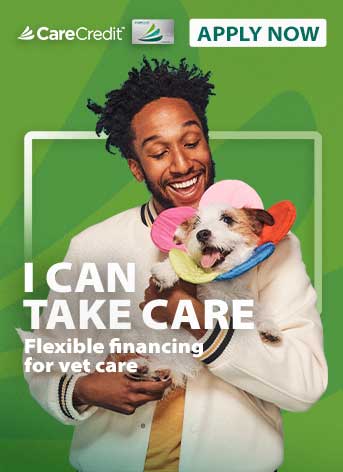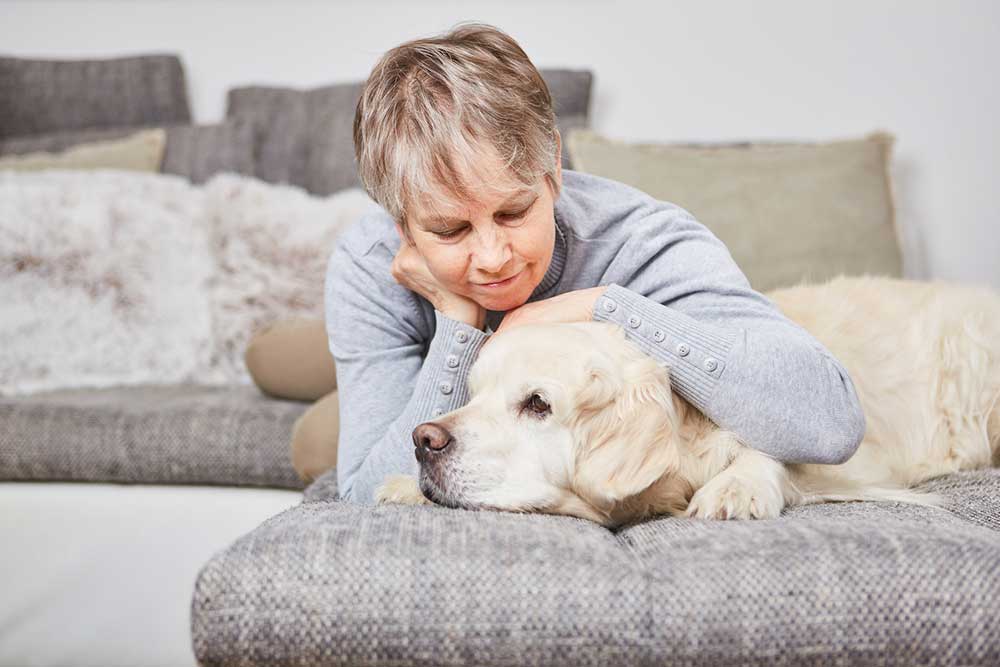A medical emergency is something every pet owner dreads. But considering that 4 out of 5 pets will need to take an unexpected trip to the emergency veterinarian at some point in their lives, it's important to be prepared. Whether your pet played too hard in the yard and ripped a toenail or is lethargic and vomiting, being able to take action quickly may make a huge difference. You may want to consider taking pet first aid and CPR courses. This knowledge can help you better learn how to recognize the signs of an emergency and care for your pet.
1. Know the Signs of a Pet Emergency
Check your pet from nose to tail regularly so you immediately recognize when something is amiss. Some issues are more obvious than others, but the American Veterinary Medical Association calls out these situations that require immediate medical attention:1
- Severe bleeding, or bleeding that doesn't stop after a few minutes, especially if the blood is coming from your pet's nose, mouth or rectum
- Coughing up blood or blood in urine
- Choking and/or difficulty breathing
- Pain when urinating or passing a stool, or not being able to go at all
- Accidental ingestion of poison or other foreign object
- Eye injuries
- Seizures or loss of consciousness
- Fracture or broken bone
- Heat stress or heatstroke
- Severe vomiting and/or diarrhea (more than twice in 24 hours, or when combined with any other issue on this list)
- Refusal to drink water for 24 hours or more
Anytime your pet appears to be in severe pain, it's worth a call to your veterinarian.
2. Keep Medical Information Easily Accessible
Keep your veterinarian's contact information in your phone and on the fridge for easy access, along with the number of your nearest emergency vet clinic. While most regular vet clinics operate during normal business hours, emergency vet clinics tend to operate either 24 hours a day or strictly outside normal clinic hours. Ask your primary vet what types of medical emergencies they handle, and which issues require a visit to the emergency vet.
It can also be helpful to keep the phone number for the ASPCA's Animal Poison Control Center (888-426-4435) in an easily accessible location. The hotline is available 24/7, 365 days a year and it can be a great resource if you have questions about something your pet ingested or aren't sure if you have a medical emergency on your hands.
3. Put Together a Pet First Aid Kit
A first aid kit can help for a variety of reasons: if your pet injures themselves but not seriously enough for a vet visit, if you need to administer care enroute to the vet or if you and your pet frequently go on adventures and you find yourself far away from medical care. It's also helpful to have all of your supplies and documentation in one place.
The components of a pet first aid kit can vary depending on your pet's needs, but some of the common items to include are:
- Important contact information (yours, your vet, poison control, etc.)
- Vaccination records
- List of any medications your pet takes
- Towel, blanket or thermal blanket
- Tools (blunt-tip bandage scissors, tweezers, tick-removal tool)
- Disposable gloves
- Cloth muzzle
- Bandages
- Gauze
- Hydrogen peroxide
- Saline solution
- Antibiotic ointment
- Styptic powder
- Bottled water
- Wet wipes
- Cold pack
- Heat pack
- Pet first aid book or guide
4. Stay Calm and Assess the Problem
Do your best to stay calm so you can accurately assess the situation and help your pet stay calmer, too. Try to get an idea of what's going on with your pet and then either call the veterinarian or get your pet to the emergency vet immediately.
5. Keep Your Pet as Calm as Possible
We all know that when we are sick, it's easy to get grumpy and agitated, and when it's an emergency, it can get even worse. Our pets are the same. If your pet is conscious, they may be more agitated than usual or even snap or bite at you when they wouldn't normally. Approach them slowly and speak softly.
If they are used to a muzzle and are acting fearful, try to get that on them before going to the vet (unless the injury is around their face and a muzzle would make it worse). If your pet is small enough, you may want to use a carrier, or keep a crate in your vehicle for emergencies to make transportation safer.
6. Call a Friend or Family Member for Backup
Whether it's staying with other pets at home or driving you to the vet, call a friend or family member to help if you can. That allows you to focus on your pet and their emergency.
7. Save Up for an Emergency
The initial evaluation of your pet for an emergency vet visit typically costs $150 to $250. From there, it depends on what treatment your pet needs, and in total, the average cost for an emergency vet visit ranges from $800 to $1,500.
Prices are based on, among other factors, location, diagnostic tests and treatment required, home treatment, whether or not you have pet insurance and what it covers. Overnight stays or anesthesia will increase the cost quickly.
CareCredit Credit Card Financing for Pets
Taking good care of your pet's well-being from nose to tail is essential. Make sure to stay up to date on their regular checkups at the vet to help keep your pet happy and healthy for a lifetime of love. You can use your CareCredit credit card for pet care throughout the year for routine veterinary services as well as emergencies and surgeries.* Use our Acceptance Locator to find a veterinarian near you that accepts CareCredit.
CareCredit is there for you and your pet every step of the way; continue your wellness journey by downloading the CareCredit Mobile App to manage your account, find a provider on the go and easily access the Well U blog for more great articles, podcasts and videos.
In addition to pet care, you can also use your CareCredit credit card for dentistry, cosmetic, vision, hearing, health systems, dermatology, pharmacy purchases, spa treatments and so much more within the CareCredit network. How will you invest in your health and wellness next?
Expert Reviewer
Dr. Kathy Wentworth, V.M.D.
Dr. Kathy Wentworth was the Medical Director of the VCA PetPoint Medical Center and Resort, located in Irvine, California. She is a graduate of the University of Pennsylvania's School of Veterinary Medicine and became board-certified as a Diplomate in Canine and Feline Practice by the American Board of Veterinary Practitioners in 2010.
Author Bio
Abbie Mood is a freelance writer with more than 10 years of experience. She has worked with clients of all sizes to create compelling content and she has written for the American Kennel Club, Marriott Bonvoy, Women's Health Online, Headspace and more.








